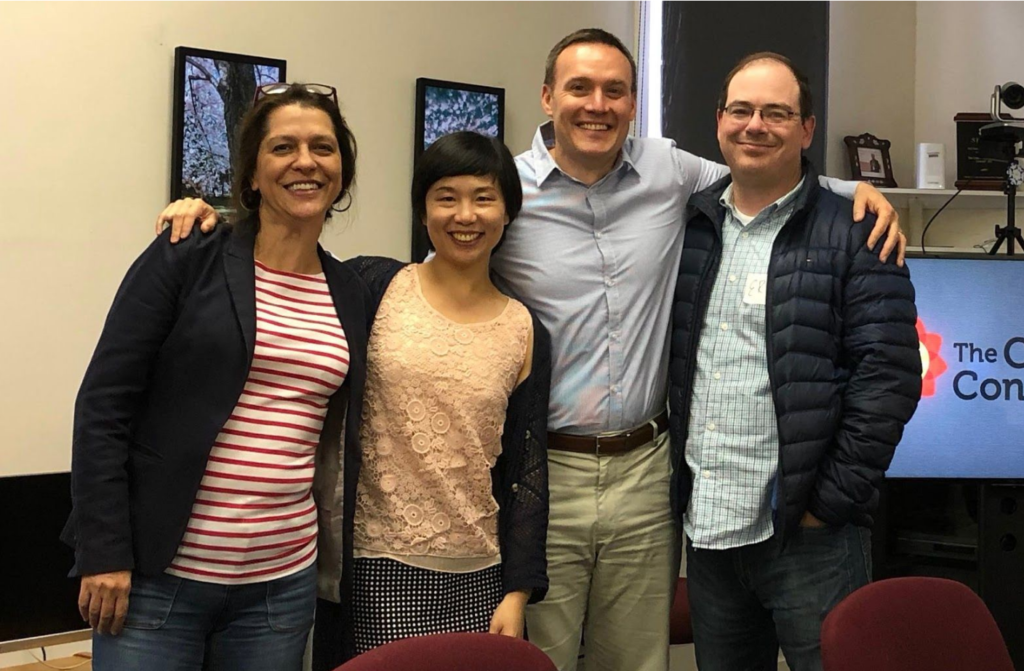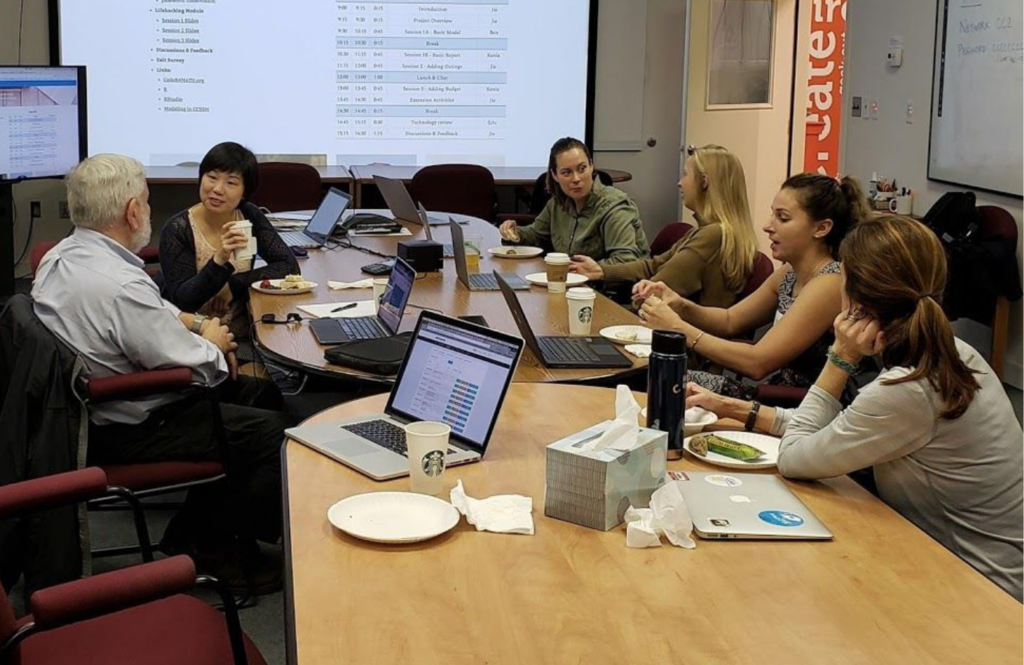Six high school mathematics teachers from Massachusetts joined us last fall to pilot test a new curriculum module designed by the Computing with R for Mathematical Modeling (CodeR4MATH) project to facilitate the instruction of mathematical modeling and computational thinking.

The CodeR4MATH team (from left to right): Kenia Wiedemann, Jie Chao, Ben Galluzzo, and Eric Simoneau.

Teachers and Concord Consortium Principal Investigator Jie Chao chat during teacher workshop.
The “Lifehacking” module aims to give students a taste of working with real-world data to tackle practical problems of daily life — from modeling the costs of eating in college (comparing meal plans to other options, for example) to owning a car and deciding on the best option to fill a car’s gas tank. In short, students are invited to build mathematical models to help them in their lives as independent young adults. Together we worked through the process of mathematical modeling, beginning by brainstorming to simplify problems that may initially look too broad and slicing them into solvable pieces.
Teachers learned the basics of programming in R, a robust yet friendly open-source language used by academics and data scientists all over the world. Using mathematical modeling principles and R, we developed a computer model we called the “food cost calculator.” The goal of this smart calculator was to return a personalized report of the monthly cost of food, based on the user’s options, preferences, habits, and budget, from eating in college cafeterias to cooking on their own.
Based on feedback from teacher experiences at the workshop, we updated the module, including new tutorials and supplemental materials. The revised module was tested with high school students in Massachusetts this winter. The goal of the CodeR4MATH project is to integrate mathematics learning with computing, so more students learn computational thinking—it may just be one of the most critical skills for solving some of society’s most pressing problems.